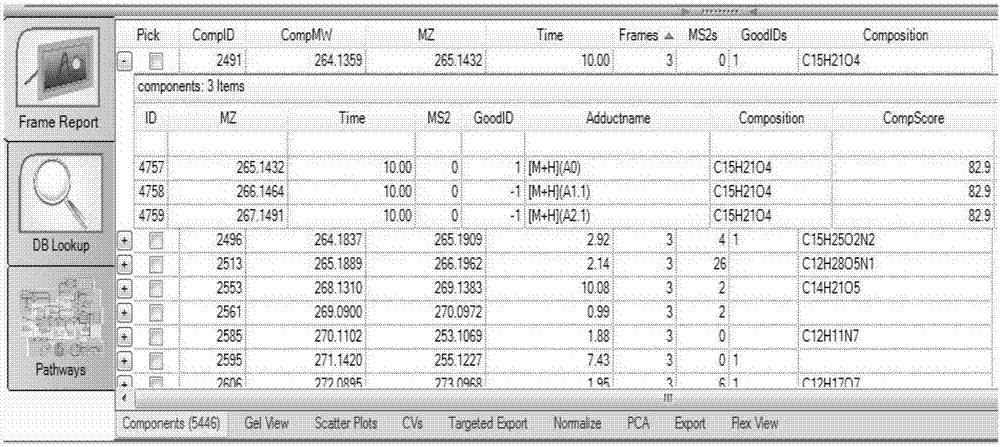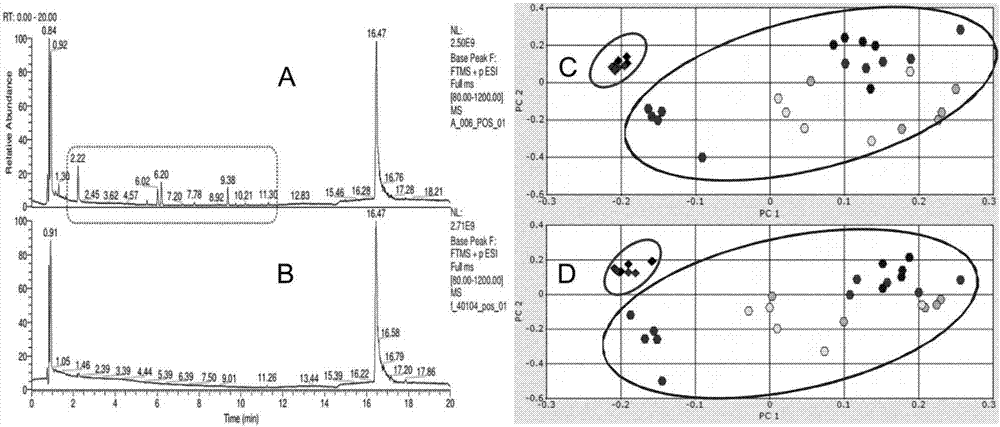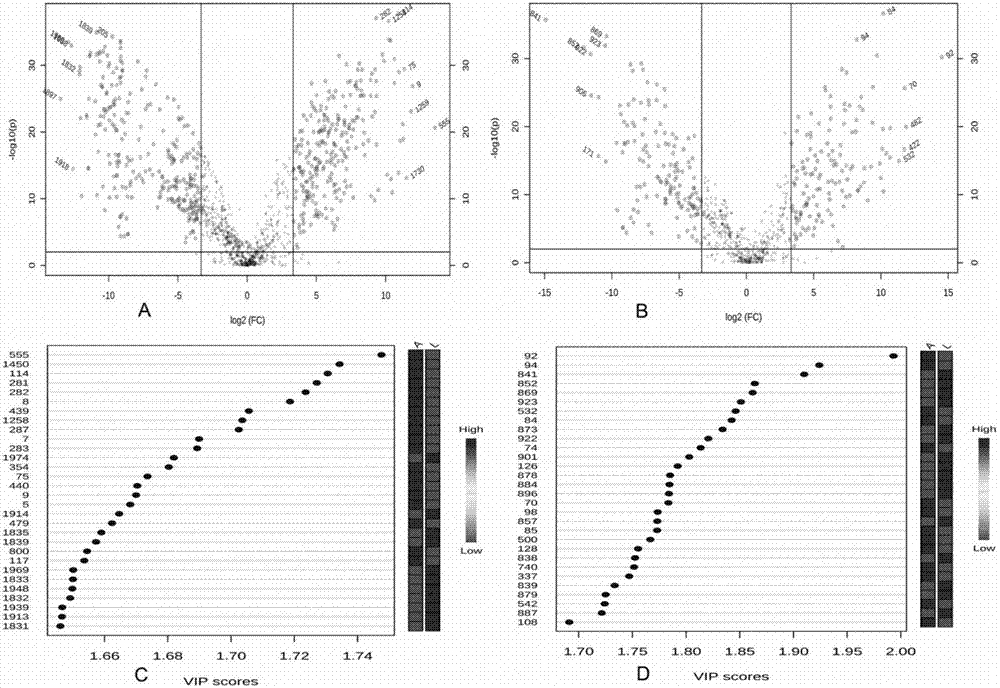Method for identifying variety of honey by use of non-target metabonomics technology
A honey and variety technology, applied in scientific instruments, measuring devices, instruments, etc., can solve problems such as unscientific and difficult, and achieve the effect of ensuring health and improving the quality of honey
- Summary
- Abstract
- Description
- Claims
- Application Information
AI Technical Summary
Problems solved by technology
Method used
Image
Examples
Embodiment 1
[0089] A method for screening characteristic markers for identifying honey varieties, the varieties being lychee honey and acacia honey, the method includes the following steps:
[0090] (1) A total of 210 honey samples were collected from Yunnan, Hainan, Fujian, Guangdong and Guangxi, the main producing areas of litchi honey in my country, and Liaoning and Shaanxi, the main producing areas of acacia honey. Among them, 28 samples from Yunnan Province, 29 samples from Hainan Province, 29 samples from Fujian Province, 33 samples from Guangdong Province, 31 samples from Guangxi Zhuang Autonomous Region, 27 samples from Liaoning Province, and 33 samples from Shaanxi Province. The samples were stored in a well-ventilated sample storage room at 20°C and protected from light. In order to improve the representativeness of honey samples, 3-6 samples from each main producing area are evenly mixed into one honey sample, and finally there are 5 honey samples from each main producing area, an...
Embodiment 2
[0105] A method for screening characteristic markers for identifying honey varieties. The varieties are lychee honey and acacia honey. The specific method is the same as in Example 1. The only difference is that the preparation of standard samples is different and the analysis conditions are different. The conditions of this example As follows:
[0106] (1) Weigh 2.0±0.1g of honey into a 10mL centrifuge tube with stopper, add 8mL of pure water, vortex for 5 minutes to mix, centrifuge at 8000rpm for 8 minutes to precipitate particulate impurities, take the supernatant, and get it;
[0107] (2) High performance liquid chromatography
[0108] Mobile phase: 0.2% formic acid water and 0.2% formic acid acetonitrile solution;
[0109] Elution conditions: 0–2.0min, 5%B; 2.0–7.0min, 5%–30%B; 7.0–13.0min, 30%–95%B; 13.0–18.0min, 95%B; 18.0–18.1min ,95%-5%B; 18.1-20.0min, 5%B;
[0110] Chromatographic column: Thermo Scientific Hypersil GOLD C-18column (2.1mm×100mm, 1.9μm) chromatographic column;...
Embodiment 3
[0116] A method for screening characteristic markers for identifying honey varieties. The varieties are lychee honey and acacia honey. The specific method is the same as in Example 1. The only difference is that the preparation of standard samples is different and the analysis conditions are different. The conditions of this example As follows:
[0117] (1) Weigh 3.0±0.1g each portion of honey into a 10mL centrifuge tube with stopper, add 10mL pure water, vortex for 10 minutes to mix, centrifuge at 10000rpm for 7 minutes to precipitate particulate impurities, take the supernatant, and get it;
[0118] (2) High performance liquid chromatography
[0119] Mobile phase: 0.05% formic acid water and 0.05% formic acid acetonitrile solution;
[0120] Elution conditions: 0–2.0min, 5%B; 2.0–7.0min, 5%–30%B; 7.0–13.0min, 30%–95%B; 13.0–18.0min, 95%B; 18.0–18.1min ,95%-5%B; 18.1-20.0min, 5%B;
[0121] Chromatographic column: Thermo Scientific Hypersil GOLD C-18column (2.1mm×100mm, 1.9μm) chromato...
PUM
 Login to View More
Login to View More Abstract
Description
Claims
Application Information
 Login to View More
Login to View More - R&D
- Intellectual Property
- Life Sciences
- Materials
- Tech Scout
- Unparalleled Data Quality
- Higher Quality Content
- 60% Fewer Hallucinations
Browse by: Latest US Patents, China's latest patents, Technical Efficacy Thesaurus, Application Domain, Technology Topic, Popular Technical Reports.
© 2025 PatSnap. All rights reserved.Legal|Privacy policy|Modern Slavery Act Transparency Statement|Sitemap|About US| Contact US: help@patsnap.com



